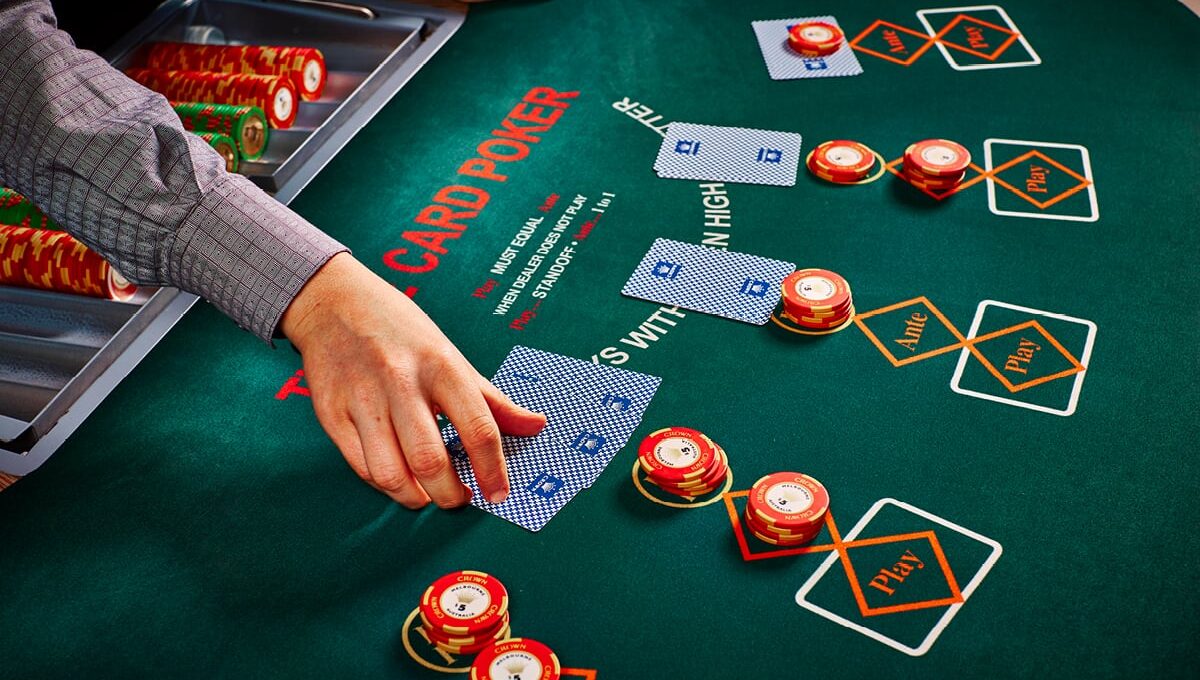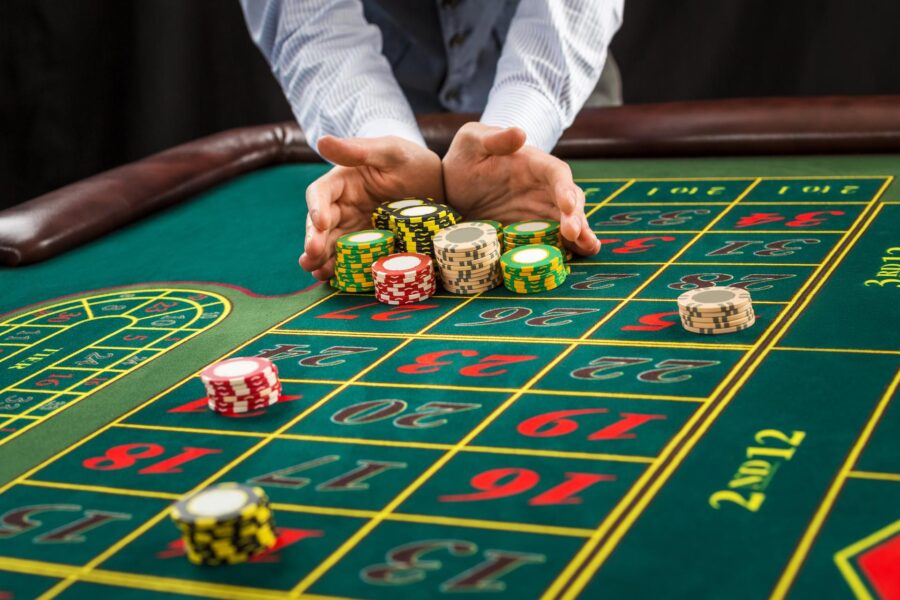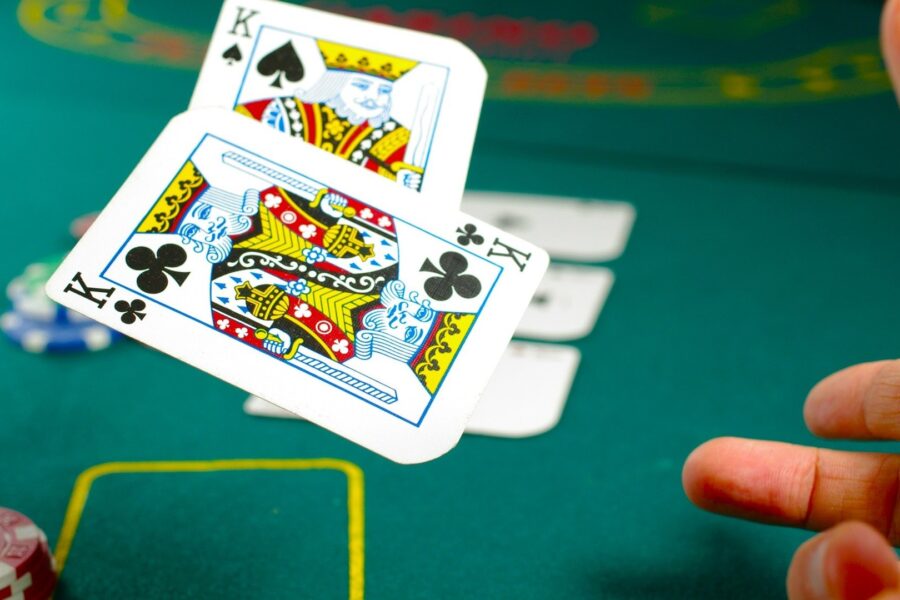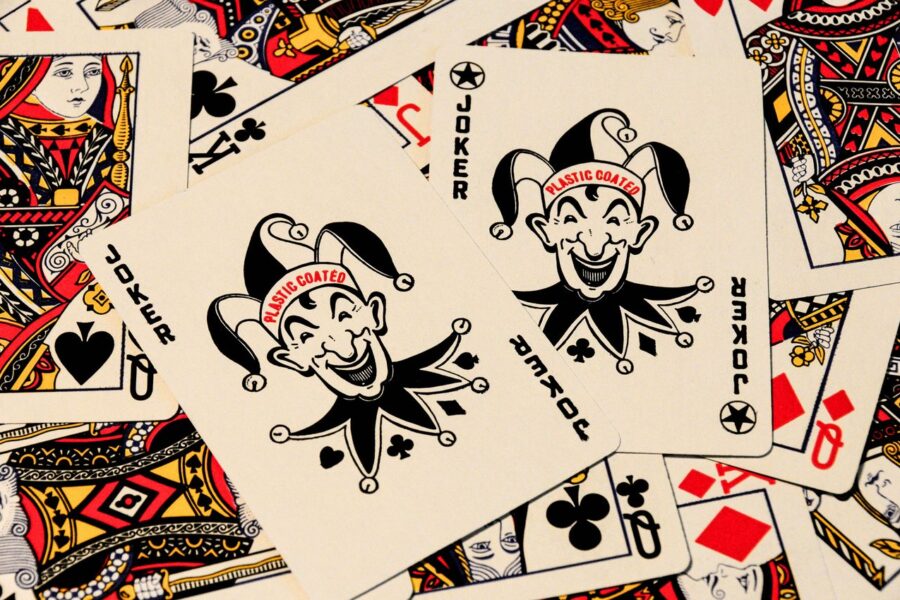How Is Casino Poker Different from Other Forms of the Game?
Poker is one of the most popular card games globally, known for its exciting gameplay and strategic approach. When we talk about casino poker, we refer to a specific form of the game that differs from home games or online play. Casino poker is an experience that combines the intensity of competition with the unique atmosphere of a place where players from all over the world come together.
Unlike online play, where opponents are often anonymous, poker in a casino allows for direct face-to-face interaction with other players. You can observe their reactions, movements, and make decisions based on what you see in real-time. Additionally, brick-and-mortar casinos often offer various forms of poker, from the classic Texas Hold’em to more exotic variations, providing players with a wide choice and the opportunity to explore different strategies.
Why Should You Try Your Hand at Casino Poker?
Playing poker in a casino is not just a test of skill but also a real challenge that delivers incredible excitement. For many players, the casino is a place where they can test their abilities in real conditions against real opponents. Here are a few reasons why you should try your hand at casino poker:
- Real Challenges: Casino poker is a game played for real stakes, where every move can result in significant gains or losses. It’s an excellent place to test your strategy and adapt it to the dynamic conditions of live play.
- Casino Atmosphere: The casino is a lively place, and poker tables attract both newcomers and experienced players. This unique atmosphere, full of tension and adrenaline, adds extra charm to the game.
- Skill Development: Playing in a casino gives you the opportunity to learn from the best. Observing the moves of experienced players, analyzing their strategies, and applying their techniques can significantly improve your skills.
- Community: Casinos are also meeting places for poker enthusiasts, where you can make new acquaintances, share experiences, and gain valuable tips from other players.
Preparing for the Game – Casino Poker Basics
Before starting a game of poker in a casino, it’s crucial to have a solid understanding of the basic rules of this popular card game. Poker is a game where the goal is to assemble the best hand or force opponents to fold through skillful betting. Although there are many variations of poker, the basic rules are usually similar.
Each poker game begins with the dealing of cards. In most variations, such as Texas Hold’em, players receive two cards that remain hidden from other players. Then, community cards are revealed on the table, which everyone can use to create the best possible five-card hand.
Players bet in successive rounds, making decisions based on their cards, the community cards, and assumptions about the opponents’ hands. The possibilities include folding, checking, betting, or raising. Understanding when and how to make these decisions is key to success in poker.
Differences Between Online Poker and Live Casino Poker
For players accustomed to playing poker online, transitioning to live casino play can be a significant challenge. There are several key differences to consider:
- Pace of Play: Online poker is typically faster, with shorter breaks between hands. In a live casino, the game progresses more slowly, giving more time for analysis but also requiring greater patience.
- Human Interaction: In live poker, psychology plays a crucial role—the ability to observe opponents’ reactions, behavior, and body language. These elements are absent in online poker, requiring a different approach to strategy.
- Chip Management: In a live casino, players physically handle chips, which can affect the dynamics of the game. Wins and losses are also more tangible when dealing with real money instead of digital credits.
- Pressure and Stress: Playing in a casino can be more stressful due to the presence of other players and the atmosphere of the place. The ability to handle pressure and stay calm in tough situations is key to success in live poker.
How to Effectively Prepare for Casino Play?
Preparing for a game in a casino requires not only knowledge of the rules but also the right strategy and mental attitude. Here are some tips to help you prepare better for the game:
- Practice Online: Before sitting at a casino table, it’s a good idea to practice playing online. This will allow you to familiarize yourself with the rules and strategies without risking large sums of money.
- Observe Other Players: If possible, visit the casino as an observer. Watching other players in action can provide valuable insights into strategies, behaviors, and common mistakes to avoid.
- Understand the Rules and Etiquette: Casinos have specific rules and etiquette that are worth learning before starting the game. Also, remember to be polite to dealers and other players.
- Bankroll Management: Set a budget for your play and stick to it. It’s important not to risk more than you can afford to lose and to avoid impulsive betting.
- Psychological Training: Casino play can be thrilling, but it’s important to stay calm and not get carried away by emotions. Practices like meditation or breathing techniques can help maintain calm and focus.
Choosing the Right Casino for Poker
Features of a Good Poker Casino – What to Look For?
Choosing the right casino for poker is a crucial step that can significantly affect your gaming experience. Not every casino offers the same conditions, and not all meet players’ expectations. To fully enjoy the game, it’s worth paying attention to a few key features that distinguish a good poker casino:
- Reputation and Licenses: First and foremost, ensure that the casino has the appropriate licenses issued by recognized regulatory bodies. Reputable casinos care about their reputation, which means you can expect fair play and secure financial transactions. Check online reviews, other players’ opinions, and any issues that may have occurred in the past.
- Poker Offerings: A good casino should offer a wide selection of poker variations, such as Texas Hold’em, Omaha, 7-Card Stud, and other popular formats. Variety allows you to choose a table that best suits your skills and preferences.
- Tournaments and Promotions: Casinos that offer regular poker tournaments with varied prize pools are particularly attractive to players. Check whether the casino organizes tournaments with different stakes and offers bonuses and promotions for poker players. Such events can not only increase your chances of winning but also add excitement to the game.
- Player Skill Level: The skill level of other players in the casino is also important. Some casinos attract more experienced players, which can be challenging for beginners. If you’re just starting your poker journey, look for a casino that offers tables for players of different skill levels.
- Customer Service and Support: Professional customer service is invaluable, especially if you encounter any issues or have questions about the game. A good casino should offer 24/7 support and various contact channels, such as live chat, email, or phone.
- Atmosphere and Comfort: Don’t forget about the comfort and atmosphere of the casino. It’s important to feel comfortable while playing. High-standard casinos take care of player comfort by offering spacious tables, a pleasant atmosphere, and additional amenities like free drinks or access to relaxation areas.
How to Check the Legality and Reputation of a Casino?
Choosing a casino is not only a matter of convenience and game offerings but, above all, safety. Before you start playing, it’s crucial to ensure that the casino operates legally and enjoys a good reputation. Here are a few steps to take to check this:
- Licenses and Certificates: Verify that the casino has a license issued by a recognized regulatory authority, such as the Malta Gaming Authority, UK Gambling Commission, or another European supervisory body. A license guarantees that the casino operates legally and adheres to strict standards of security and fairness.
- Reviews and Player Opinions: Before choosing a casino, familiarize yourself with the opinions of other players. Online reviews, poker forums, and casino rankings can provide valuable information about the quality of service, game offerings, and the overall reputation of the casino.
- Transaction Security: Ensure that the casino offers secure payment methods and that it uses the latest security technologies, such as SSL, to protect your personal and financial data.
- Business History: Casinos with a long history of operation generally enjoy greater trust. It’s worth checking how long the casino has been on the market and whether it has had any legal issues or complaints from players.
- Test Visits: If possible, visit the casino in person or play for a small amount first to get a feel for the quality of service and gaming conditions.
How to Behave at the Poker Table? – Stages of Gameplay
Etiquette at the Table – How to Avoid Faux Pas?
In casino poker, besides knowing the rules and strategies, etiquette is extremely important. Proper behavior not only influences the atmosphere of the game but also your image among other players. Appropriate behavior can build respect and camaraderie, while ignoring etiquette can lead to misunderstandings or even conflicts.
- Respect for Other Players: Always treat your opponents with respect. Avoid offensive comments, criticism of their play, or dismissiveness. Poker is a strategic game where everyone has the right to their own style of play.
- Courtesy to the Dealer: The dealer is a crucial element of the game, responsible for dealing cards and managing the game. Treat them with respect, don’t blame them for unfavorable hands, and follow their instructions.
- Patience and Focus: Poker requires patience. Avoid annoying behaviors such as suddenly standing up from the table, interrupting the game, or pressuring other players to make quicker decisions.
- Avoid Distractions: Talking on the phone, loudly commenting on the game, or engaging in other distracting activities can negatively impact your and other players’ concentration. Try to maintain silence and focus during the game.
First Steps – What to Do After Taking a Seat at the Table?
When you sit at the poker table in a casino, it’s important to know how to proceed to start the game with the right attitude and without unnecessary stress. Here are a few steps you should take to smoothly enter the game:
- Understanding the Table Rules: Before you start playing, make sure you know the rules at the table. These may include minimum and maximum stakes, betting rules, and specific rules related to the poker variation being played.
- Preparing Chips: After taking your seat, exchange your money for casino chips. Make sure you have enough chips for the game and that they are in the appropriate denominations, making the game flow more smoothly.
- Observing the Table: Before actively participating in the game, it’s worth observing the players, the pace of the game, and the style of the opponents. This will help you better understand the table dynamics and adjust your strategy accordingly.
- Wait for Your Turn: In most casinos, you must wait your turn to join the game, usually after the current hand is finished. During this time, you can focus, analyze your strategy, and mentally prepare for the upcoming game.
How to Read Other Players’ Behavior?
Psychology is a key element of poker strategy. The ability to read other players’ behavior can give you an advantage at the table. Every player has their “tells”—subtle signals that can reveal their emotions or hand strength. Here are some tips on how to read your opponents’ behavior:
- Hand Movements and Facial Expressions: Players often unconsciously reveal their emotions through hand movements, facial expressions, or eye contact. For example, trembling hands may indicate stress, and avoiding eye contact may suggest a weak hand.
- Decision-Making Speed: Players who make quick decisions may feel confident in their hand, while longer deliberation may indicate uncertainty or an attempt to bluff. Observe how quickly opponents make decisions and in what situations they change their pace.
- Verbal Clues: Although words are rarely used in poker, some players may try to influence the game through comments or conversations. Be alert to what other players say—it could be an attempt to mislead you or distract you.
- Behavioral Changes: If you notice sudden changes in a player’s behavior—such as becoming more aggressive or unexpectedly cautious—it may signal that something has changed in their hand or strategy.
The Importance of Position at the Table – Why Does It Matter?
Position at the poker table has enormous strategic importance and can determine your success in the game. Your position determines when in a given round you will have to make a decision—before or after your opponents. Here’s why position is so important:
- Early Position: If you’re one of the first players to act, you have less information about your opponents’ intentions. This makes playing from early position riskier and requires more caution.
- Middle Position: Playing from this position, you already have partial information about the decisions of players before you. You can adjust your strategy, but you still need to consider possible moves from players acting after you.
- Late Position: The most advantageous position at the table, as you have a complete picture of the situation after most players have made their decisions. Players in late position can use their position to play aggressively, forcing others to fold or make risky decisions.
- Blind Positions: Players on the small and big blinds are obligated to place a bet before seeing their cards, putting them at a disadvantage. Understanding how to play from these positions is crucial to minimizing losses and maximizing gains.






Leave a Comment